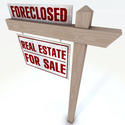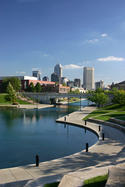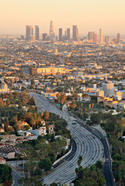My father was a career enlisted man in the United States Air Force. I was in the third or fourth grade when he graduated from high school. My mother graduated from high school after I was married. My dad worked for several companies after his Air Force career. He was working for Disney when he died. My mother worked part time in child care from time to time. read more »
Economics
The Former East Germany: Is It Time for Red Nostalgia?
2009 marks the 20th anniversary of the reunification of East and West Germany into one country. Germany was divided into two separate nations with competing economic and political ideologies. Now it’s time to reassess the results of this melding of two very different systems and the impact on the urban environment.
Emerging from the ashes as one of the world’s most powerful economies, Germany may be the quintessential example of the triumph of capitalism over communism. Yet now with Frankfurt’s powerful banking sector reeling from the global economic meltdown, reticent Marxists may well be coming out of the woods to proclaim the death of capitalism. read more »
One Fundamental Problem: Too Many People Own Homes
Ben Bernanke made the following statement as he attempted to justify bailing out bad borrowers:
“…from a policy point of view, the large amount of foreclosures are detrimental not just to the borrower and lender but to the broader system. In many of these situations we have to trade off the moral hazard issue against the greater good.” – Ben Bernanke, February 25, 2009
I think he is wrong on this, and the moral hazard issue is only a small part of my objections. read more »
Sunbelt Indianapolis
For decades, the overwhelming majority of population and economic growth has occurred in the Sun Belt – the nation’s South and West as defined by the United States Bureau of the Census. This broadly-defined area stretches south from the Washington-Baltimore area to the entire West, including anything but sunny Seattle and Portland. Any list of population growth or employment growth among the major metropolitan areas will tend to show the Sun Belt metropolitan areas bunched at the top and the Frost Belt areas (the Northeast and Midwest regions) bunched at the bottom. read more »
Urban Inequality Could Get Worse
President Obama's stated objective to reduce inequality, as laid out in public addresses and budget plans, is a noble one. The growing income gap – not only between rich and poor, but also between the ultra-affluent and the middle class – poses a threat both to the economy and the long-term viability of our republic.
But ironically, what seems to be the administration's core proposal, ratcheting up the burden on "rich" taxpayers earning over $250,000, could have unintended consequences. For one thing, it would place undue stress on the very places that have been Obama's strongest supports, while providing an unintended boost to those regions that most oppose him. read more »
The Aging of Paradise in Ventura County California
You could say that Ventura County, just north of Los Angeles, represents what is best about California. Some people believe that its amenities – beaches, gorgeous interior valleys and parks – assure perpetual economic growth for Ventura County and California. They are wrong. There is trouble in paradise.
Ventura County has changed, and not for the better. It is aging, losing its demographic as well as economic vitality. This represents a relatively new phenomenon, the slow decline of even formerly healthy suburban areas. read more »
- Login to post comments
Why Homeownership Is Falling – Despite Lower Prices: Look to the Job Market
By Susanne Trimbath and Juan Montoya
There’s something about “Housing Affordability” that makes it very popular: Presidents past and present set goals around it. The popularity of this perennial policy goal rests on the feel-good idea that everyone would live in a home that they own if only they could afford it. Owning your own home is declared near and far to be the American Dream.
Recently, however, it seems that Americans’ aren’t all having the same dream. Despite improving conditions of affordability, home sales continue to decline. read more »
The Panic of 2008: How Bad Is It?
Just how bad is the current economic downturn? It is frequently claimed that the crash of 2008 is the worst economic downturn since the Great Depression. There is plenty of reason to accept this characterization, though we clearly are not suffering the widespread hardship of the Depression era. Looking principally at historical household wealth data from the Federal Reserve Board’s Flow of Funds Accounts of the United States, summarized in our Value of Household Residences, Stocks & Mutual Funds: 1952-2008, we can conclude it’s pretty bad, but nothing yet like the early 1930s. read more »
The Decline of Los Angeles
Next week, Antonio Villaraigosa will be overwhelmingly re-elected mayor of Los Angeles. Do not, however, take the size of his margin – he faces no significant opposition – as evidence that all is well in the city of angels.
Whatever His Honor says to the media, the sad reality remains that Los Angeles has fallen into a serious secular decline. This constitutes one of the most rapid – and largely unnecessary – municipal reversals in fortune in American urban history. read more »
Death of the California Dream
For decades, California has epitomized America's economic strengths: technological excellence, artistic creativity, agricultural fecundity and an intrepid entrepreneurial spirit. Yet lately California has projected a grimmer vision of a politically divided, economically stagnant state. Last week its legislature cut a deal to close its $42 billion budget deficit, but its larger problems remain. read more »






















